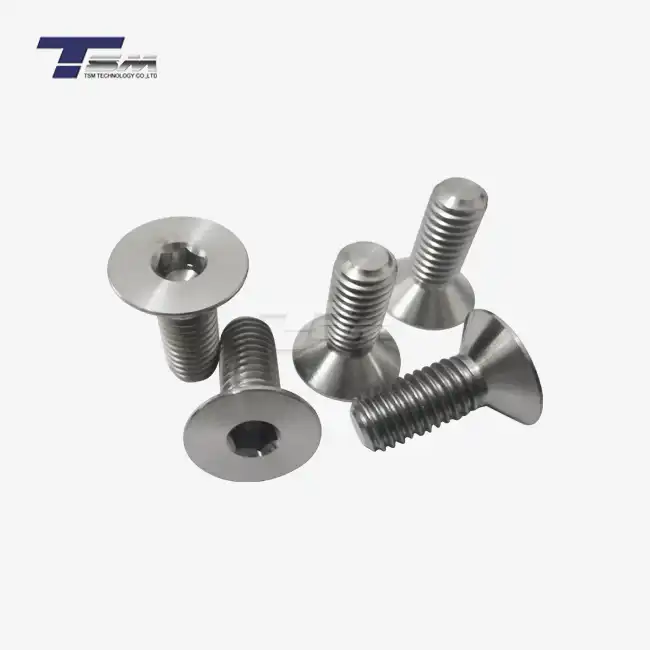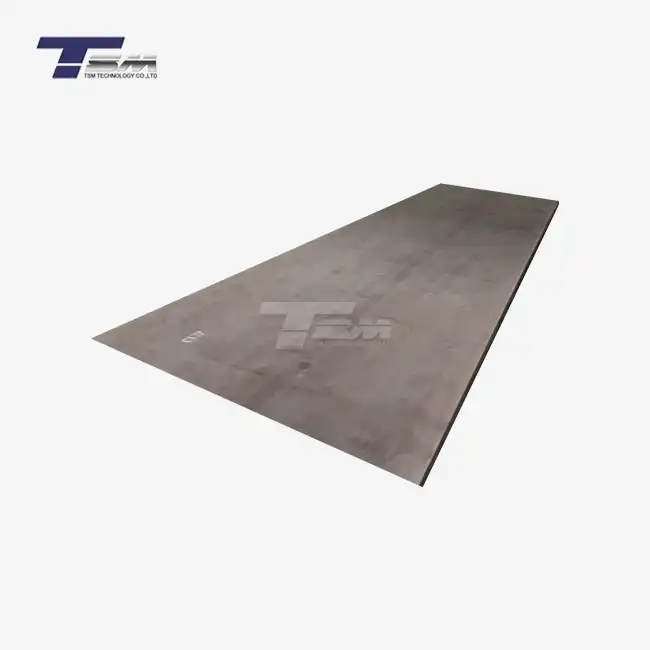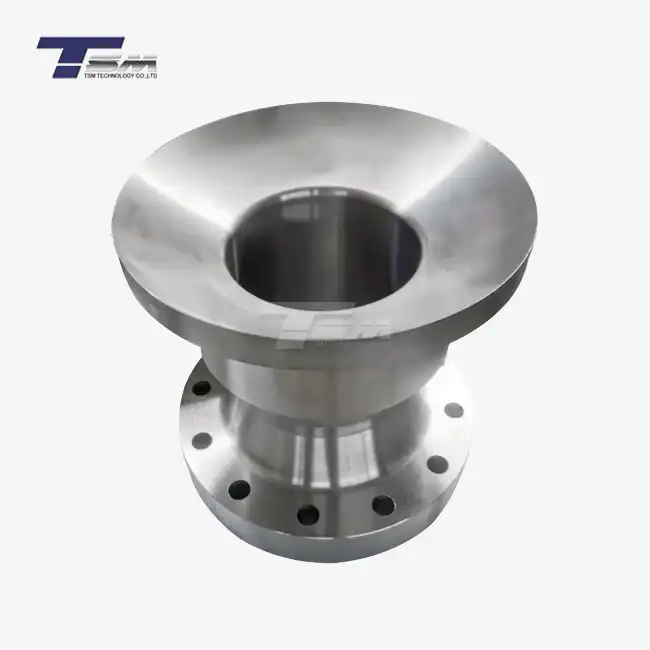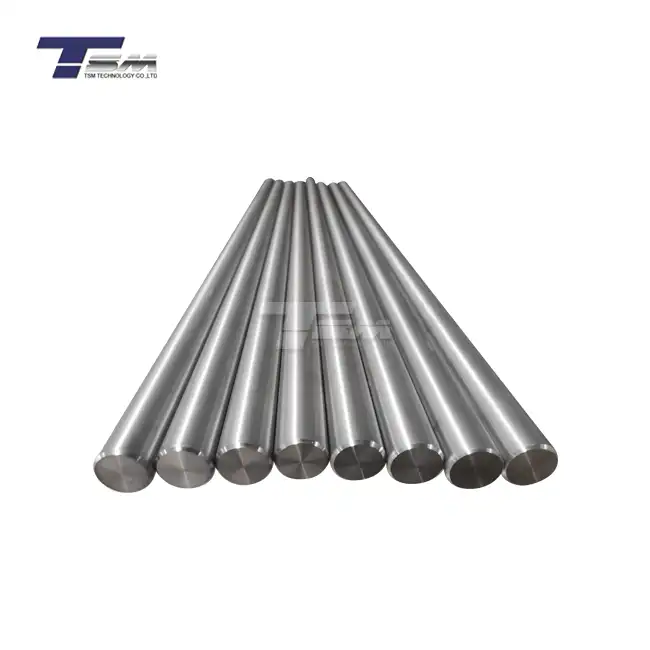The Manufacturing Process of Inconel 600 Round Bar
Raw Material Selection and Preparation
The journey of Inconel 600 round bar begins with the careful selection of high-purity raw materials. Nickel, the primary component, is sourced from reputable suppliers to ensure its quality. Chromium and iron, along with trace elements such as manganese, silicon, and carbon, are also sourced. These materials undergo thorough inspection and testing to verify their composition and purity levels. The precise proportions of each element are crucial in achieving the desired properties of the alloy 600 round bar.

Melting and Alloying Process
Once the raw materials are prepared, they are melted in specialized furnaces. The melting process typically employs either electric arc furnaces or vacuum induction melting techniques. These methods ensure a homogeneous mixture and prevent unwanted oxidation. During this stage, the alloying elements are carefully added in specific quantities to achieve the desired chemical composition of Inconel 600. The molten alloy is then subjected to various refining processes to remove impurities and adjust the final composition.
Casting and Ingot Formation
After the melting and alloying process, the molten Inconel 600 is cast into ingots. This casting process can be done through various methods, including continuous casting or ingot mold casting. The choice of casting method depends on the desired size and shape of the final product. Once cast, the ingots undergo a homogenization heat treatment. This crucial step ensures uniform distribution of alloying elements throughout the ingot, eliminating any segregation that may have occurred during solidification.
Shaping and Forming Inconel 600 into Round Bars
Hot Working Techniques
The transformation of Inconel 600 ingots into round bars involves hot working techniques. This process typically begins with either forging or hot rolling. Forging involves applying compressive forces to the heated ingot to shape it into a round bar. Hot rolling, on the other hand, uses a series of rollers to gradually reduce the ingot's cross-section and elongate it into a bar shape. Both methods improve the alloy's grain structure and mechanical properties. The temperature control during these processes is critical to prevent defects and ensure optimal material properties.
Cold Working and Finishing
After hot working, the Inconel 600 bars may undergo cold working processes to refine their dimensions and surface finish further. Cold drawing or turning operations can be employed to achieve precise diameters and smooth surfaces. These processes not only enhance the dimensional accuracy of the round bars but also contribute to improved mechanical properties. The cold working stage is carefully controlled to balance the desired strength increase while maintaining the alloy's ductility.
Heat Treatment and Annealing
Heat treatment plays a vital role in developing the final properties of Inconel 600 round bars. The bars undergo solution annealing, which involves heating them to high temperatures (typically around 1100°C) and then rapidly cooling. This process dissolves precipitates, homogenizes the microstructure, and relieves internal stresses. The result is a bar with optimized corrosion resistance and mechanical properties. In some cases, additional heat treatments may be performed to tailor the alloy's characteristics for specific applications.
Quality Control and Testing of Inconel 600 Round Bar
Non-Destructive Testing Methods
Quality assurance is paramount in the production of Inconel 600 round bars. Non-destructive testing (NDT) methods are extensively used to inspect the bars without compromising their integrity. Ultrasonic testing is employed to detect internal defects or discontinuities. Eddy current testing helps identify surface and near-surface flaws. Magnetic particle inspection, although limited due to the alloy's low magnetic permeability, can be used in certain conditions. These NDT techniques ensure that the round bars meet stringent quality standards and are free from critical defects.
Mechanical Property Verification
The mechanical properties of Inconel 600 round bars are rigorously tested to ensure they meet specified requirements. Tensile testing is conducted to determine the bar's yield strength, ultimate tensile strength, and elongation. Hardness tests, such as Brinell or Rockwell hardness, are performed to verify the material's resistance to indentation. Impact tests may also be carried out to assess the alloy's toughness. These mechanical tests provide crucial data on the bar's performance capabilities, helping to verify its suitability for intended applications.
Chemical Composition Analysis
The chemical composition of Inconel 600 round bars is analyzed to ensure it falls within the specified ranges. Techniques such as optical emission spectroscopy or X-ray fluorescence are used to determine the precise percentages of nickel, chromium, iron, and other alloying elements. This analysis is critical in verifying that the alloy composition meets the ASTM or other relevant standards. Additionally, carbon content is carefully monitored, as it significantly influences the alloy's properties and performance in high-temperature environments.
Conclusion
The production of Inconel 600 round bar is a complex process that combines advanced metallurgical techniques with stringent quality control measures. From the careful selection of raw materials to the final testing and certification, each step is crucial in creating a product that meets the exacting standards of modern industry. The resulting Inconel 600 round bars offer exceptional corrosion resistance, high-temperature strength, and versatility, making them invaluable in various demanding applications across multiple sectors. As manufacturing technologies continue to evolve, the production process of these superior alloy bars will likely see further refinements, ensuring even higher quality and performance in the future.
Contact Us
For more information about our high-quality Inconel 600 round bars and other superior alloy products, please don't hesitate to contact TSM TECHNOLOGY. Our team of experts is ready to assist you with your specific requirements and provide tailored solutions for your industry needs. Reach out to us at info@tsmnialloy.com to discuss how our premium alloy products can enhance your projects and applications.



